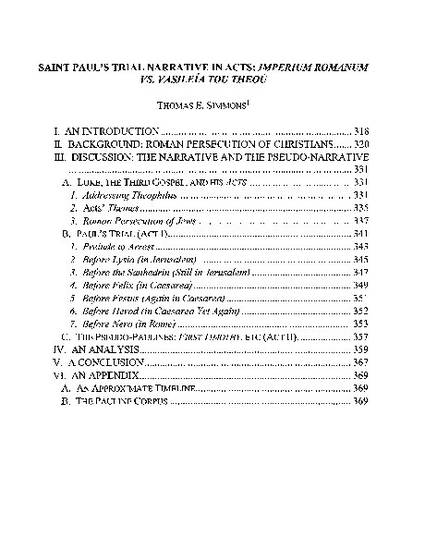
Article
Saint Paul’s Trial Narrative in Acts: Imperium Rōmānum vs. Vasileía tou Theoú
65 South Dakota Law Review 317
(2020)
Abstract
Saul of Tarsus (alias Paul) encountered the resurrected Christ on the road to Damascus. Thereupon, Paul not only became a follower of "the Way," he went from an aggressive persecutor of early Christians to one of its most intellectual and influential apostles. Towards the end of his life, he went on trial. Saint Paul's trial in first century Judea before Felix and Festus receive a detailed fleshing-out in the Acts of the Apostles. A quasi-prosecutor even briefly appears. But Paul's subsequent legal proceedings in Rome and his execution there are excluded from the narrative. Meanwhile, Acts portrays Christianity as a "safe place" in the Roman Empire by affixing fault on the Jews for all forms of unrest surrounding the early church. This essay contextualizes the legal proceedings described in Acts and explores "the Second Act" of Paul's proceedings in Rome, its omission from the New Testament, and the hints about Paul's ultimate fate in the Pseudo-Pauline epistles.
Disciplines
- Law and
- Religion Law
Publication Date
2020
Citation Information
Thomas E. Simmons, Saint Paul’s Trial Narrative in Acts: Imperium Rōmānum vs. Vasileía tou Theoú, 65 S.D. L. Rev. 317 (2020)
